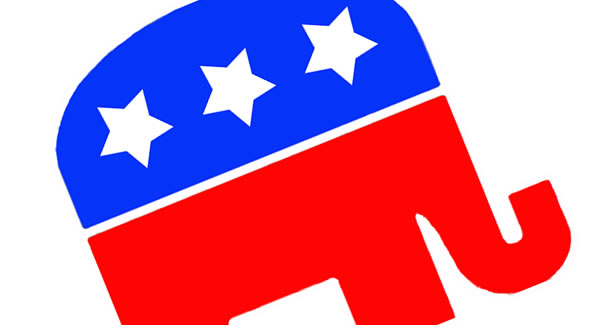Top 5 Most Partisan Republican Senators of 2012

 In the political context, a partisan is a committed member of a political party, one who psychologically identifies with a particular political group or party. A partisan in a multi-party system connotes complete or overwhelming support for party policies, reluctant to bridge space with political opponents. The last few years have seen a rise in partisan polarization on Capitol Hill, the result of which is nasty gridlocks that hold hostage important political and legislative issues. Voting behavior is reflective of voters’ partisan tendencies; this is true for individuals voting for candidates and of elected officials voting on economic and social issues and on foreign affairs.
In the political context, a partisan is a committed member of a political party, one who psychologically identifies with a particular political group or party. A partisan in a multi-party system connotes complete or overwhelming support for party policies, reluctant to bridge space with political opponents. The last few years have seen a rise in partisan polarization on Capitol Hill, the result of which is nasty gridlocks that hold hostage important political and legislative issues. Voting behavior is reflective of voters’ partisan tendencies; this is true for individuals voting for candidates and of elected officials voting on economic and social issues and on foreign affairs.
In recent years, Republicans, more so than Democrats, are blamed for what critics refer to as ‘obsolescence’ resulting from partisan paralysis. They are seen as targeting party members with centrist tendencies and pushing the caucus further to the right, making compromise almost impossible. This is not to say that there has been no ideological shift in the Democrats, but that overwhelmingly it is the Republicans who have repositioned the divide through the replacement of moderate Republican and Southern Democrats by very conservative Republicans. The rise of the Tea Party will only deepen the ideological shift towards the right and away from moderate politics. Furthermore, as election season nears its climax, Republicans have been blamed for blocking key economic revival bills in the hopes that a weakened economy will propel the Democratic Party and President Obama at its helm, away from victory.
For 2011, the most partisan members of the Senate have been judged on the basis of blocking legislature because it was either introduced by a member of the opposing party, to advance the interests of special lobbies or as a means of holding the opposing party hostage for the purpose of negotiations on other bills.
1) Richard Shelby (R-AL) since 1987
For putting a blanket hold on at least 70 nominations President Obama has sent to the Senate, allegedly in an attempt to redirect certain lucrative programs to his home state. The Senator has listed three key reforms, namely ‘creating a board rather than a single czar to run the agency, subjecting the CFPB to the congressional appropriations process, and making sure it considers impact of new rules on the safety and soundness of financial institutions’ as his reasons for blocking the appointments.
2) Senator Mitch McConnell (R-KY) since 1985
For blocking the Bring Jobs Home Act along with 41 other Republicans. Mitch McConnell had warned beforehand that Republicans would block the vote if it did not contain amendments on repealing the Affordable Care Act or extending Bush era tax cuts for all income levels, amendments that were not germane to the original bill. In contrast to their campaign slogan that promised job creation, Republicans have been instrumental in blocking a significant number of job creation bills put forward by the Democrats.
3) Senator John McCain (R-AZ) since 1987
For successfully leading a group of lawmakers to water down cyber security bill that independent analysts and lawmakers argue is crucial for protecting computer systems that operate the nation’s critical infrastructure. Supporters of the bill were caught off-guard by McCain’s determined opposition considering that for years the Senator had made national security issues his priority. Powerful business groups including the U.S Chamber of Commerce were against the bill; McCain touted their argument that the new Act would result in regulations that ‘would create a costly and cumbersome process’. Incidentally the Chamber of Commerce is an important source of support for the Republicans.
4) Senator Judd Gregg (R-NH) since 2012
For writing the equivalent of an ‘obstruction manual’. The Senator insists that it is "critical that Republican senators to have a solid understanding of the minority's rights in the Senate". To help them, Gregg has made a note of all procedural tools Republicans can use before issues are considered, come to the floor and even after the passage of a bill. Opponents consider this a classic case of Republican intransigence designed to slow down any progress on reforms.
5) Senator Marco Rubio (R-FL) since 2012
For opposing the American Jobs Act – an Act that had the potential to create 2 million jobs for Americans – and then going on to state that the American middle class has suffered under President Obama. Addressing Republicans before the first presidential debate, Rubio said’ -- the American middle class is hurting. You know why the American middle class is hurting? Because the policies that Barack Obama is imposing on the United States haven't worked anywhere in the world they have ever been tried’. By blaming the President for hurting the middle class and then blocking bills that aim at creating more jobs, Senator Rubio adds to the list of Republicans accused of blocking employment growth bills in an attempt to blame Democrats for a weakened economy.


